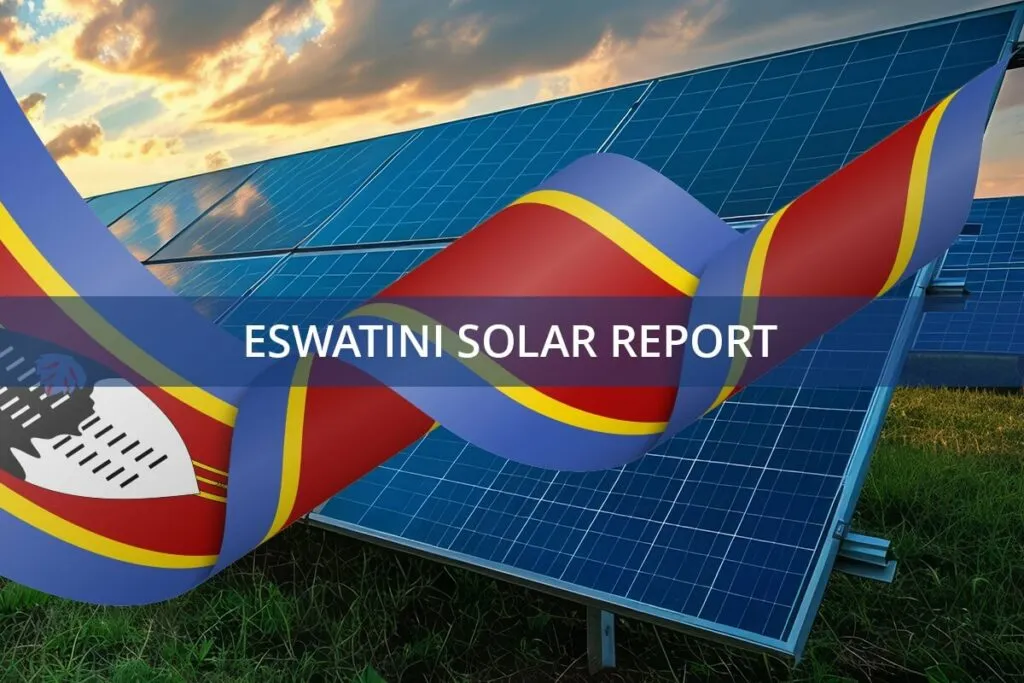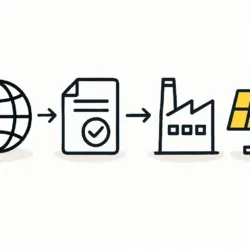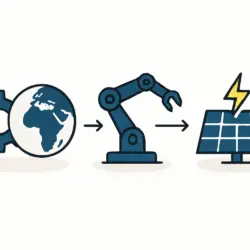Enhancing Eswatini solar training initiatives
In a significant move to bolster its renewable energy sector, Eswatini is expanding the skills of its workforce through a strategic donation of solar equipment to the Eswatini College of Technology (ECOT). This initiative, spearheaded by the Eswatini Energy Regulatory Authority (ESERA), aims to provide robust, practical training in photovoltaic (PV) installation and maintenance, directly supporting the nation’s ambitious energy goals.
The donation is a key component of the ongoing Photovoltaic (PV) Installers’ Training Programme, an initiative designed to support the Eswatini National Energy Policy of 2018 (ENEP 2018) and the Renewable Energy and Independent Power Producer (RE&IPP) Policy of 2015. These policies underscore the critical need for capacity building within the energy sector, focusing on renewable sources and energy efficiency. By equipping technicians with hands-on experience, this program is essential for the sustainable growth of Eswatini’s power industry. A deep understanding of the equipment, from the core solar panel raw materials to the final installation, is vital for ensuring quality and longevity.
A Historic Day for ECOT and Eswatini solar training
Speaking at the handover ceremony, ESERA CEO Vusumuzi Mkhumane described the event as a “historic day” for ECOT and a significant milestone for Eswatini’s journey toward energy independence. He emphasized that renewable energy is crucial for the country’s energy security, self-reliance, and sustainability. The PV Installers’ Training Programme aims to equip participants with the skills needed for proper installation and maintenance of solar systems, ensuring public safety and the long-term success of renewable energy projects.
The programme has already successfully trained 63 participants in its first two cohorts. The new equipment will enhance the programme’s impact by providing practical, hands-on training for future students. This directly aligns with the government’s strategic goal of reducing its reliance on imported electricity. This goal has seen tangible progress, with import dependency dropping from a staggering 90% in 2018 to a target of 60%, marking a significant step towards Eswatini energy independence. Mkhumane also highlighted that the equipment will enable ECOT to train a larger number of students in PV installation and maintenance, building a skilled workforce for the future.
Eswatini’s Commitment to Renewable Energy and solar training
The Eswatini government is deeply committed to transitioning to renewable energy, a goal outlined in the National Development Strategy (NDS) Vision 2022 and further supported by the National Energy Policy (NEP) and the RE&IPP Policy. These policies are not just on paper; they are driving substantial action to increase the share of renewables in the national grid.
This commitment is reflected in the country’s ambitious plans. While the installed on-grid solar capacity was 11 MW as of 2023, ESERA has confirmed plans to construct an additional 75 MW of solar PV capacity and has also launched a tender for another 100 MW of solar power. This massive expansion requires a skilled workforce capable of executing these projects to the highest standard. The strategy includes not only large-scale grid projects but also the expansion of off-grid solar initiatives to boost energy access in remote areas.
The donation to ECOT is a foundational part of this broader effort. By training more PV installers, Eswatini is building the human infrastructure needed to achieve its renewable energy goals. While installer training is the immediate focus, developing a comprehensive understanding of the entire value chain, including the basics of solar panel manufacturing, could represent the next phase in the nation’s energy evolution.
The donation of solar equipment by ESERA to the Eswatini College of Technology marks a critical step forward in Eswatini’s renewable energy journey. By investing in the training of PV installers, the country is building a skilled, local workforce ready to support its transition to a cleaner, more secure energy future. This initiative perfectly aligns with the government’s strategic goals of energy security, self-reliance, and long-term sustainability.
To learn more about the technical and business aspects of the solar industry, explore our free e-course on solar panel manufacturing.



